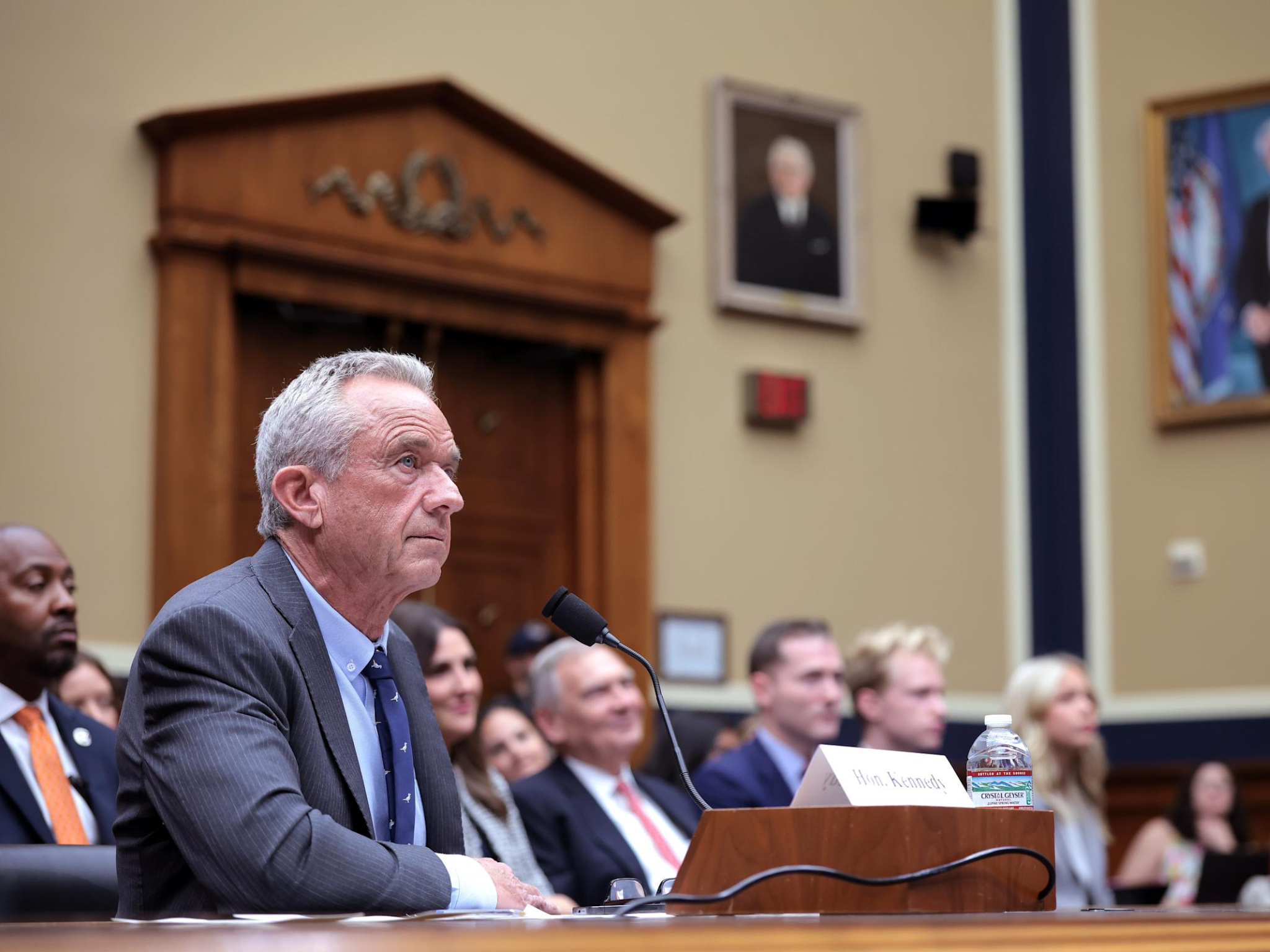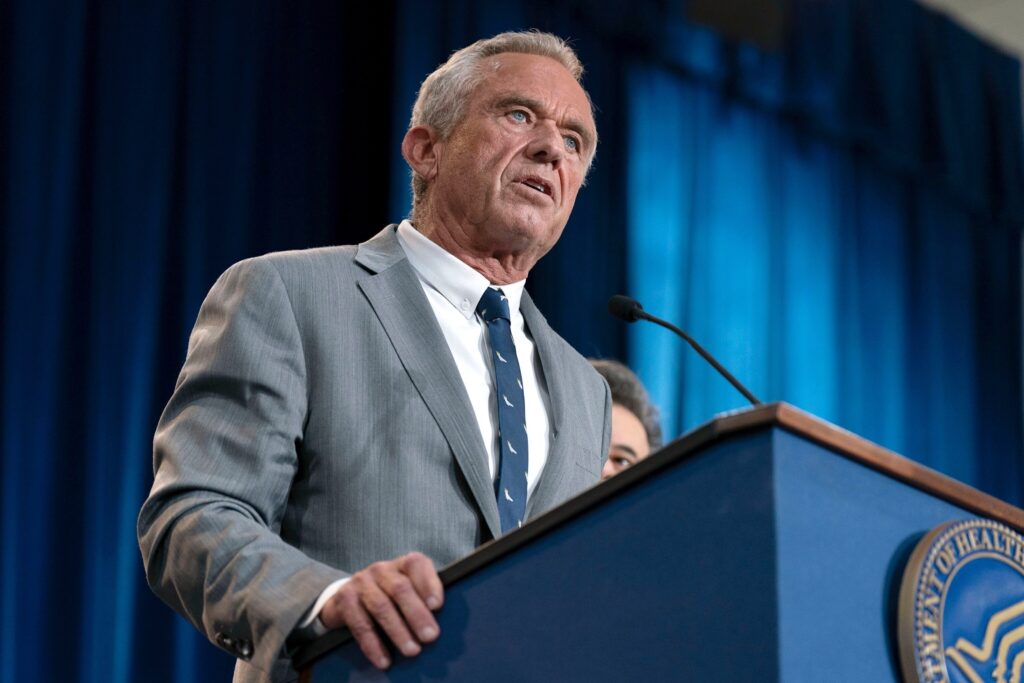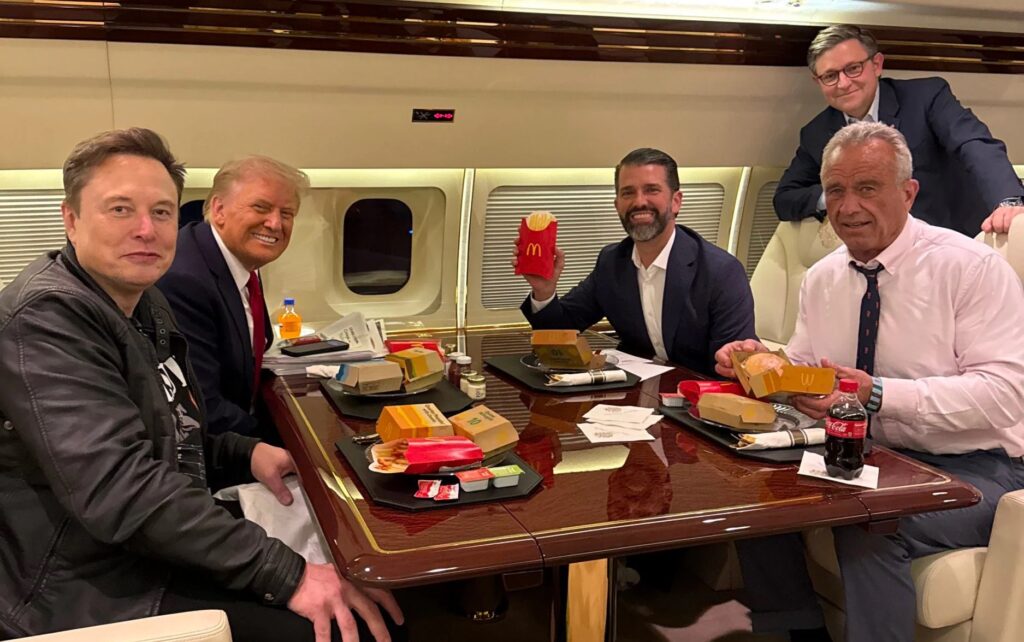
US health secretary Robert F Kennedy Jr has pledged to cut red tape and maintain the country’s biotech leadership, despite the rollback of a Biden-era biomanufacturing mandate.
From MAHA to MABA, the current US administration sure loves an acronym.
Amid his war on pesticides and ultra-processed foods (UPFs), health secretary and former CRISPR investor Robert F Kennedy Jr has announced his intention to “Make American Biotech Accelerate”, as foreign powers gain ground in the sector.
“The mission to Make America Healthy Again (MAHA) includes MABA – Make American Biotech Accelerate,” he tweeted earlier this week. “We’re clearing the path to transform great science into real cures, at lower costs, and better health for the American people. Life science and biotech are at the heart of that.”
The move is in direct contrast with Donald Trump’s executive order that rescinded his predecessor’s actions to advance biomanufacturing, as well as the government’s mass job cuts at the Food and Drug Administration (FDA) earlier this year.
But could this biotech focus extend to food tech – and particularly alternative proteins, which have come under threat from state-level bans, a lack of investment, and the UPF discourse?
The mission to Make America Healthy Again (MAHA) includes MABA — Make American Biotech Accelerate.
— Secretary Kennedy (@SecKennedy) June 20, 2025
President Trump showed in his first term what happens when you unlock American science — breakthroughs happen fast.
Now, we’re going to do it again.
We know the power of U.S.…
RFK Jr looks to speed up regulatory approvals with MABA
“President Trump showed in his first term what happens when you unlock American science – breakthroughs happen fast. Now, we’re going to do it again,” said Kennedy.
Within the food tech world, cultivated meat firm Upside Foods previously told Green Queen that “most of the work” it did to get its chicken approved for sale in the US “was under the first Trump administration”. The same goes for Eat Just’s Good Meat, which was simultaneously greenlit by the US Department of Agriculture in June 2023.
When RFK Jr took office, there were suggestions that the regulatory pathway for novel foods could become much more complicated. One close ally indicated that the health secretary was likely to make things much more complicated for startups pursuing FDA approval for cultivated meat.

Shortly after, he moved to eliminate a rule that allowed food and drug makers to self-affirm new ingredients under the FDA’s Generally Recognized as Safe (GRAS) pathway, calling it a “loophole” exploited by companies.
“If the agency moves toward stricter oversight, it risks stifling innovation in the US, making it harder to bring groundbreaking, sustainable food solutions to market,” Brittany Chibe, co-founder and CEO of Aqua Cultured Foods, told Green Queen in March. Her startup uses biomass fermentation to make seafood analogues, and obtained self-determined GRAS status last year.
Responding to the uncertainty, an FDA official told this publication at the time: “As the FDA continues to support innovation in food technologies, the agency’s priority is the safety of food produced through both innovative and traditional methods. The agency is committed to transparency on our approach to regulating foods made using innovative food technologies.”
Speaking before the House Energy and Commerce Subcommittee on Health this week, RFK Jr – a prominent vaccine sceptic – hinted that the US’s biotech approval process could become much more open.
“We’re going to make sure that the United States remains the centre of [the] biotech revolution,” he said. “We’re going to try to dismantle the barriers to biotech development and approval, and to make sure that we do everything that we can to support that industry.”
Already this year, Mission Barns and Wildtype have both received the FDA’s go-ahead to sell their cultivated pork and salmon, respectively, making the US the only country to have approved four such products. RFK Jr’s MABA initiative has a chance to extend this leadership, if deployed correctly.
MABA is in contrast with Trump and RFK Jr’s actions
“We know the power of US biotech. It’s time to let it flourish – not tie it up in red tape, misalignment, and a process that gives the edge to foreign interests and large incumbents,” Kennedy’s tweet read.
Indeed, slowing action by the US government has driven increased innovation elsewhere. Singapore has long been a food tech leader (and was the first to clear the sale of cultivated meat), but China has made a wave of strategic advancements and backed alternative proteins to strengthen its biotech leadership.
That has grasped the attention of Republicans, who last year aired their concerns in a letter responding to the director of national intelligence’s annual threat assessment. “Put simply, we cannot allow China to control more of the world’s food supply than it already does. To cede American leadership in the global innovative protein market to foreign adversaries like China is to forfeit the food security of the United States and its allies,” they wrote.

It’s in line with RFK Jr’s comments to the House this week, where he pointed out how China is “putting huge amounts of money into this space, and it’s important that we do the same thing”.
But money is precisely the problem. Food tech funding has been on the decline, thanks to geopolitical uncertainty, rising costs, Trump’s tariff wars, and the rise of AI. But it’s not just private investors – the US government itself is divesting from the sector.
One of the myriad executive orders signed by Trump upon his return to office rescinded a 2022 action by former President Joe Biden, which sought to advance biotech and biomanufacturing by prioritising R&D funding and streamlining regulation for precision fermentation, cultivated meat, and other novel foods. It led the Department of Defense to invest over $60M in 34 companies, including a host of alternative protein players.
So the president has shied away from biotech innovation – how will that dovetail with RFK Jr’s promise? There’s also another conflict to consider. The health secretary wants to make it easier for biotech companies to secure regulatory approval, but seven states have now banned cultivated meat, and many others are planning to do the same.

RFK Jr has also railed against UPFs, a classification most alternative proteins fall under. The government is now planning to launch a “bold, edgy” campaign to warn Americans about the health impact of these foods. These products have drawn ire from across the aisle, as well as Kennedy’s nominee for surgeon general, Casey Means, despite nutritionists warning against a blanket rejection of all UPFs.
It remains to be seen what the MABA programme really entails – and how it will sidestep the barriers created by its own proponents.
The post Make American Biotech Accelerate: Is RFK Jr’s Latest Promise Good News for Food Tech? appeared first on Green Queen.
This post was originally published on Green Queen.